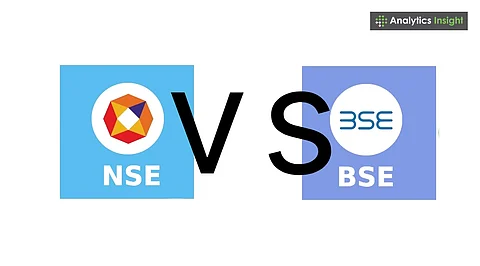

NSE offers faster trading systems and higher liquidity, making it ideal for active traders.
BSE is Asia’s oldest exchange and supports a broader range of listed companies, including small-cap firms.
The choice between NSE and BSE depends on trading goals, company preferences, and investor strategy.
In India, the majority of stock trading takes place through either NSE (National Stock Exchange) or BSE (Bombay Stock Exchange). Both exchanges facilitate the trading of stocks, bonds, and commodities. While they share several similarities, they differ in key areas such as transaction speed, the number and type of listed companies, and overall investor preferences.
Choosing the right exchange largely depends on your trading style, investment objectives, and the specific companies you wish to invest in. Understanding these differences can help you make more informed and strategic investment decisions.
Bombay Stock Exchange (BSE) is the oldest in Asia, dating back to 1875.
It has played a significant role in shaping India's financial markets. Over the years, it has evolved into a robust platform with numerous listed companies, including smaller ones.
National Stock Exchange (NSE) came along in 1992 and quickly gained popularity due to its online trading, fast execution, and transparent system. NSE is known for being more up-to-date tech-wise and for launching the Nifty 50 index, which follows the top 50 companies in India.
One of the most significant differences is the number of companies you can find on each exchange. BSE has over 5,000 listed companies, making it the largest exchange in India. This includes a wide range of small companies.
NSE, on the other hand, has around 2,000 listed companies, but many are bigger, medium-sized businesses. Because of this, NSE tends to attract larger investors and professional traders.
NSE vs BSE debate often centers on factors like volume, innovation, and investor trust in an Indian Stock Exchange. NSE tends to be a busier market than BSE. That's why big-time traders usually prefer it.
BSE might have fewer trades, but it remains essential, particularly for companies not listed on NSE. People who invest for the long haul and look for good value often check out BSE.
Both exchanges have their leading indices. NSE's Nifty 50 is watched closely in India. It shows how the top 50 companies are doing based on their value and how easily you can buy or sell their stock. BSE Sensex is another popular one, which includes 30 well-known companies.
These indices help investors keep track of the market and make better choices. They both work similarly and are seen as promising signs of how India is doing.
NSE has some quick trading technology. Their systems are faster, which means less waiting around when you're trying to buy or sell. This is a plus for fast-moving traders and big investors who need speed.
BSE has become more modern over the years, offering online trading as well. Still, NSE is generally better when it comes to the whole trading setup.
The trading fees? They differ on NSE and BSE, but not significantly. NSE usually wins on fees, mainly if you're trading big time. BSE can still be a superb and cheaper option if you're doing small trades or investing in smaller companies. Just double-check those fees against what your broker charges and what your trading plan is.
Picking between NSE and BSE? Here's the deal: NSE is your go-to if you're into fast trades and big-name companies. BSE? It's got more variety. Think of it as a good place to hunt for cheaper stocks, especially if you're eyeing those smaller businesses.
Choosing the best Indian exchange depends on your investment strategy and trading style. Many brokers give you access to both exchanges, so you can pick the one that's right for each trade. Using both gives you more chances to diversify and make a profit in return.
Also Read: Budget 2025: How It Could Impact Indian Stock Market
Both NSE and BSE are safe for investors. NSE is ahead in terms of trading volume, speed, and market share. BSE provides more choice in company size and the type of business. Go with what matches what you want to get out of investing, how much risk you can handle, and the company you're thinking about.
Knowing what each exchange is good at helps you plan a better investment approach. With some research, you can make the most of both NSE and BSE.
1. Which is older, NSE or BSE?
BSE is older, established in 1875, while NSE started in 1992.
2. Which exchange has more listed companies?
BSE has more listed companies, with over 5,000 compared to NSE's 2,000.
3. Which exchange offers better liquidity?
NSE offers better liquidity due to higher trading volumes.
4. What is the main index of NSE?
NSE’s main index is the Nifty 50, tracking 50 top Indian companies.
5. Is one exchange safer than the other?
SEBI regulates both NSE and BSE, and they are equally safe for trading.
